Start
Your Future Now
Earn your master’s degree on a schedule that’s convenient for you.
Fill out the form below and a member of our team will reach out right away!
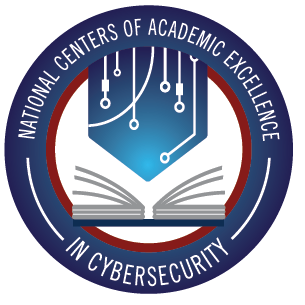
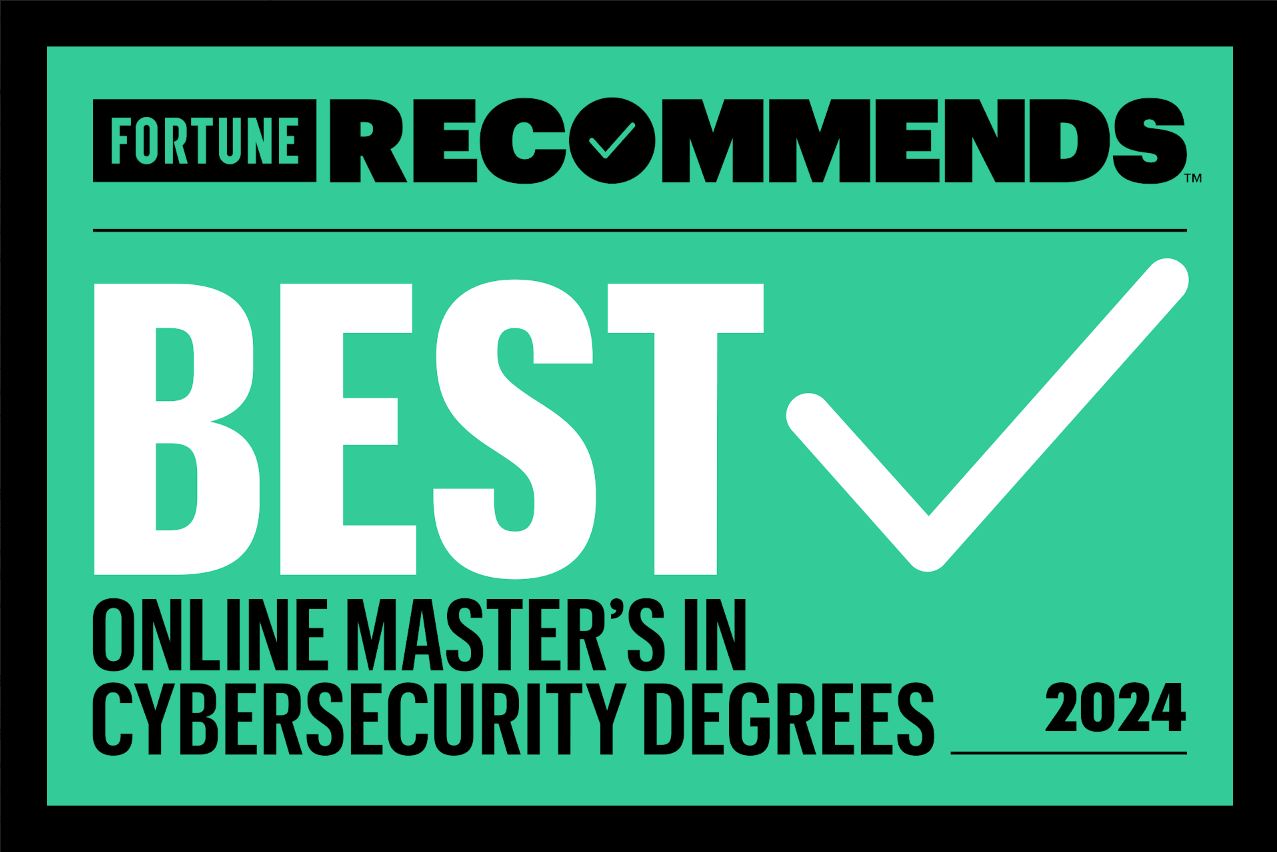
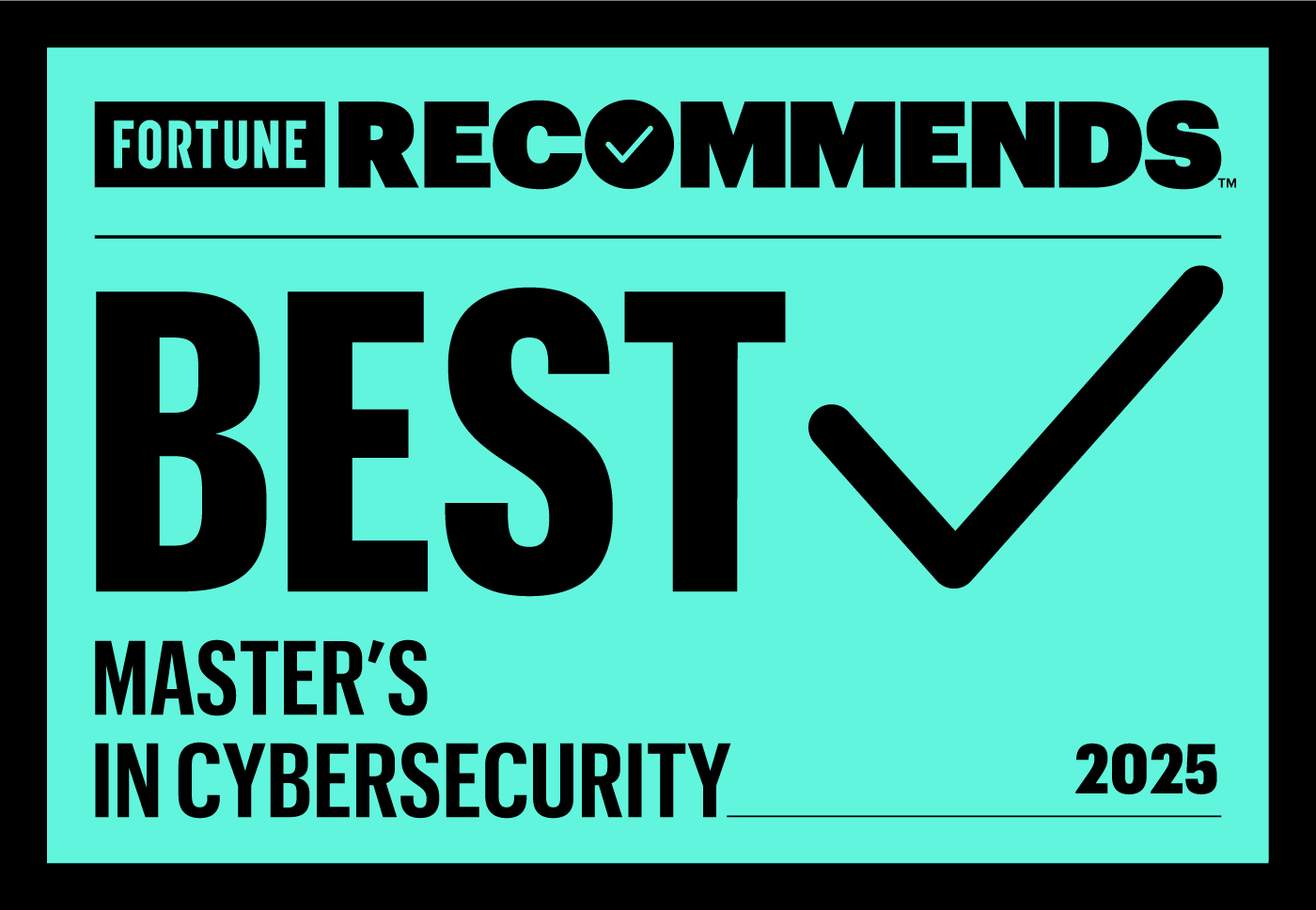
"*" indicates required fields
The 30-unit program consists of ten courses. Courses are offered year-round with three semesters every year; Spring, Summer, and Fall. Each semester lasts 14 weeks. Students take two courses per semester. Courses run for seven weeks each with a one or two week break in between semesters. This intensive format allows students to focus on one course at a time and to still complete the degree program in 20 months.
On campus courses typically meet twice a week, after hours, for three-hour sessions. Additional homework, research, and study time are required. Students are advised to spend 15-18 hours per week in each course in order to be successful.
NOTE: Courses and units/course subject to change until classes start. Some students may be required to take CYBR 505, Computational Roots of Cyber Security, as a prerequisite.
Number of months it takes to graduate from the program
Average number of hours of coursework to expect each week
USD provides support services from your initial inquiry through graduation and placement. As a nationally ranked Catholic institution, the University of San Diego is focused on an unwavering expectation: academic excellence. We want to help you become the Changemaker you want to be!
When you first inquire about one of our graduate degree programs, you will be assigned a personal Enrollment Advisor. Your Enrollment Advisor is available to answer your questions, help you assess your eligibility for admission, and guide you through the application process. Your advisor will help you every step of the way from the moment you indicate your interest in a program through the entire application process. Our team of Advisors can even help order your undergraduate transcripts, guide you through the process of writing your admission essay, and ensure you are staying on top of deadlines.
A Program Advisor will be your primary point of contact for support once you are admitted and have formally registered for classes. When you first enroll, your Program Advisor will schedule a 15-minute introductory call to review technology/equipment requirements, connect you with resources for finanacial aid, GI Bill/VA funding, payment plans etc. and help you sign up for the Online Orientationl. Over the course of your program, you’ll work with your Program Advisor to add/drop classes, coordinate credit transfers, and address any technical challenges you might be experiencing. In fact, you can direct most university-related questions to your Program Advisor; if they do not have the answer, they will point you to the available resource that does.
Each of our graduate degree programs has an Academic Advisor, who is responsible for evaluating applications and admitting new students, monitoring your academic progress and providing guidance as needed. Program Advisors also serve as instructors for their respective programs.
Career Services at the University of San Diego (USD) serves as a centralized resource for USD students, alumni and employers. Career Services can provide you with online career tools and other resources to help you with your job search.
The courses offered in the Master of Science in Cyber Security Engineering include:
| Course | Units |
|---|---|
|
An introduction to the fundamentals of cybersecurity. This includes understanding the concepts of threats, vulnerabilities, and risk as to t… |
3 |
|
This course is an introduction to fundamental concepts of computer networking network defense (fundamentals of network security including pl… |
3 |
|
This course continues to build on the fundamental concepts introduced in CYBR 501 by advancing the investigation of threats, vulnerabilities… |
3 |
|
This course is an introduction to core principles of modern cryptography and applied cryptographic methods and systems. It includes descript… |
3 |
|
In this course the student will be introduced to the approaches for building confidence in the ability of a computer system to correctly enf… |
3 |
|
This course continues into the design of secure and sustainable networks. This includes network hardening methods, advanced configurations o… |
3 |
|
This course presents various methodologies for performing testing to ensure a system conforms to security standards by; 1-Creating and confi… |
3 |
|
In this course techniques for assuring the continued operation of secure systems in contested environments will be explored. The course thro… |
3 |
|
In Research 1, students will be introduced to a multi domain international company that requires cybersecurity support to update and formali… |
3 |
|
In Research II, students will continue the implementation of the capstone case study introduced in Research I a multi domain international c… |
3 |
Courses and units/course subject to change until classes start. For students that do not come from a cybersecurity or computer science background they may be required to take CYBR 505, Computational Roots of Cyber Security, as a prerequisite. The course is an accelerated introduction to software systems with an emphasis on computer programming, computer architecture, and operating systems.
Students are admitted throughout the year for admission into one of three semesters (Spring, Summer, and Fall). Each semester two courses are offered, with students focusing intensively on one course at a time – a total of 7 weeks for each course. Degree plans for our Online and On Campus programs are available below.
Admission application packets are accepted on a rolling basis. A decision will be recommended by the Review Committee within 1 week from submission.
Download a PDF of your degree plan that corresponds with your start term.
Important dates for your starting term will be found in the degree plan. Important dates for subsequent terms can be found in your student success center after acceptance.
The curriculum is designed to achieve the following learning outcomes, in addition to the graduate learning outcomes shared across all of USD’s Master’s level programs. The Master of Science in Cyber Security Engineering program provides knowledge and skill in architecting, developing, and fielding secure network solutions against cybersecurity threats. Throughout their studies, students will:
TestOut is an online service for students working on certifications. It consists of courses taught through “lab sim (simulation)” with text, videos, labs, and assessments. Each course runs approx. $129-$179.
USD students in the CSE program will be required to utilize TestOut as part of the curriculum. Instead of purchasing TestOut for the proper courses outside of Canvas, the TestOut online service will be embedded in the Canvas classroom. As soon as they log into their course, they will have access. The “lab fee” will go towards the student’s tuition. The students will only be required to purchase each course once. So, if Security Pro for TestOut is used in 3 classes, the student only has to pay that lab fee once.
While a student will use portions of the TestOut courses, they will not be required to complete the full course, just the professor prescribed exercises. If they do choose to complete the TestOut course in its entirety on their own time, they will be qualified to sit for different certifications (highlighted below). Once a student accesses a TestOut course, they will have access to it for 24 months.
CYBR 501
Security Pro Test Out Course = $129
Prepares students for:
TestOut Security Pro CompTIA Security+ (SY0-501).
CYBR 502
Ethical Hacker Pro Test Out Course = $179
Prepares students for:
TestOut Ethical Hacker Pro EC-Council’s Certified Ethical Hacker
CYBR 503
Security Pro and Ethical Hacking Pro = $0 (since already charged in CYBR 501/502)
Cyber Defense Pro = $109
Prepares students for:
TesOut CyberDefense Pro Certification
CompTIA Cybersecurity Analyst (CySA+) Certification
CYBR 504
Security Pro and Ethical Hacking Pro = $0 (since already charged in CYBR 501/502)
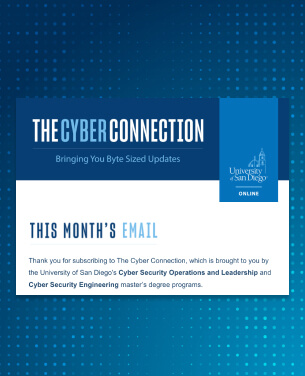
Stay ahead of the curve with the latest news, trends, and industry insights — plus updates on what’s happening with USD’s cybersecurity programs. Subscribe today!
Yes. The Master of Science in Cyber Security Engineering degree program is designed specifically with working professionals in mind, offering both on-campus and online options for maximum convenience.
The online program can be completed on your own schedule (as long as deadlines are met). The on-campus program typically meets twice a week (Monday and Wednesday, or Tuesday and Thursday) with classes scheduled after 6 p.m.
It is important to note that all of our professors are industry practitioners, meaning that they have a significant amount of experience and are often well-respected leaders within the cybersecurity industry.
The program is designed to be completed in 20 months.
The curriculum schedule functions on a rotational system, meaning that if a student skips a course they will have to wait for the rotation to complete before jumping back in. We encourage individuals who are interested in the program to speak with an enrollment advisor or to work with their program coordinator, who is available to help every step of the way.
Each course lasts a total of seven weeks with the only exception being introductory courses, which are 14 weeks. Students take two courses each semester, focusing intensively on one course at a time.
This advanced degree program was designed specifically to help train the next generation of cybersecurity engineers.
For those already working in cybersecurity and looking to take the next step in their career, this is an academically rigorous program — including hands-on coursework utilizing a virtualized Cybersecurity Sandbox — that will prepare you for more advanced positions within the field of cybersecurity engineering.
For students with less experience, who may be at an earlier juncture in their professional career, or for those switching careers from more traditional IT roles, our this program offers a strong and comprehensive foundation, allowing you to quickly advance into your desired career.
No. The admissions committee takes a comprehensive approach when reviewing applications. A GRE or GMAT score is not necessarily a good indicator that someone is, or will be, a successful cybersecurity engineer.
Download the eBook:
Building in Security from the Start: Why Cyber Security Engineers Will Soon be in High Demand
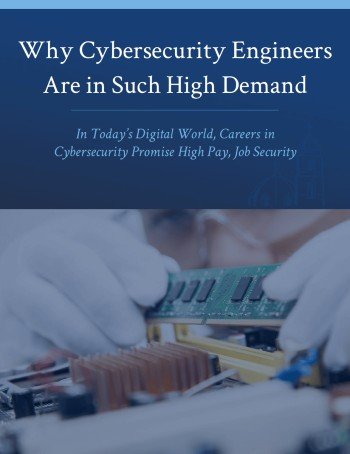
Earn your master’s degree on a schedule that’s convenient for you.